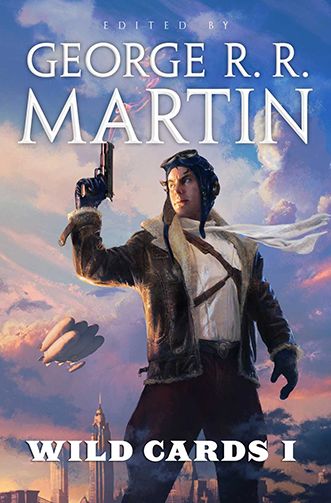Recently finished
Soon I Will Be Invincible, the superhero novel I mentioned earlier in the thread, and found it to be quite enjoyable, with a surprising grasp of prose that made it far more than a hack writer's low-fantasy, D&D version of a comic book yarn.
But as enjoyable a read, as delightful the character of Dr. Impossible (one of two narrators), and as charming as the entire world and plot were,
Soon I Will Be Invincible basked too much in cheesy, though lovingly-rendered tropes that made it impossible for the novel to rise above the level of pulp to the mature deconstruction that it could have been. That many of the most entertaining moments in the novel were humorous bits of self-consciously over-the-top and tongue-in-cheek scenes that were quite simply "none-more-trope" is telling (
*spoiler* such as the main villain's pre-recorded, generic victory speech upon his defeat of the heroes, which is played on repeat in their prison cells deep within Dr. Impossible's straight-up island fortress/mad scientist laboratory
*end spoiler*).
I don't suppose the author was going for a new literary masterpiece to rival
Watchmen, but there was still a disconnect between the maturity of the treatment of the characters and the story, and the campy trappings; it was all too on-the-nose and tongue-in-cheek to really be taken seriously. Whether criticizing comic book tropes (
Watchmen) or simply twisting them for the sake of telling a superhero story from a different angle (pretty much everything Mark Millar has ever done), a comic deconstruction must still stand apart from those tropes in a way that it rises above its source material, even if in the end it's still telling a true superhero story.
I guess as much as I enjoyed the book, and would totally be down for a sequel, it didn't leave an impression on me that will last after I've moved on.
Wild Cards 1

Only about a third of the way through, but this is already moderately blowing me away. I was dubious when I found out that this was a collection of short stories by members of a group of role players who inserted many of their characters from a table top superhero RPG, but the fact that it was compiled and edited by none other than George R.R. Martin, who was also the "gamemaster" of the group, and is the first in a series of highly respected anthologies in the same universe, made me give it a shot.
I'm glad I did. This is a much more serious take on superhero deconstruction (my favorite genre of superhero story), with highly personal stories and offbeat characters who bear little in common (so far) with traditional, trope heroes, creating a very fresh set of tales that feels modern even almost thirty years after it was first published.
Watchmen is a clear inspiration, and the "heroes" are likewise tragic figures, often going from hero to all-too-human **** ups (calling them part-time anti-heroes would be reductionist). But the greater scope allowed by long-form literature allows the characters to be explored in even greater depth, and the format of multiple authors writing self-contained short stories that still fit into the overarching narrative makes this feel as much novel as anthology.
The different authors' different stories also make this feel like one of those massive crossover events from mainstream comics, but without the editorial interference of a DC or Marvel, and the fact that this feels much more like a collaboration between co-conspirators rather than a hodge podge jigsaw story arc by writers with little to no interaction with one another, the tone, quality, and flow of the narrative is much more consistent and organic.
Early stories touch on distinct yet related themes about American history and society, such as the alienation of war veterans upon their return from combat (the book is set around the end of WWII, but considering that it was released in the late-eighties I imagine it was really about the more relatively recent experiences of Vietnam vets); the public's love of heroes and celebrities and their subsequent dismissal and condemnation of those same people at the merest hint of a fall, which is explored through the House Un-American Activities Committee's attack on a previously beloved, Justice League-analogue team of early heroes; and I'm just delving into a story which seems to deal with the contradictory morality of the medical establishment's treatment of patients experiencing extreme suffering due to their incurable afflictions.
I'm hoping that this will be a book with a diverse collection of moral lessons to impart on readers (which is ultimately the job of any superhero story in the first place) while eventually weaving everything together into a narrative of epic superhero scope that satisfies both as a literary achievement and piece of escapist anti-tripe that pays homage to comic books, while not being shackled by their tropes.
Even at this stage I highly recommend this to any nerd or fan of literature in general.